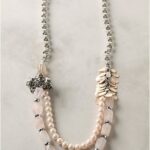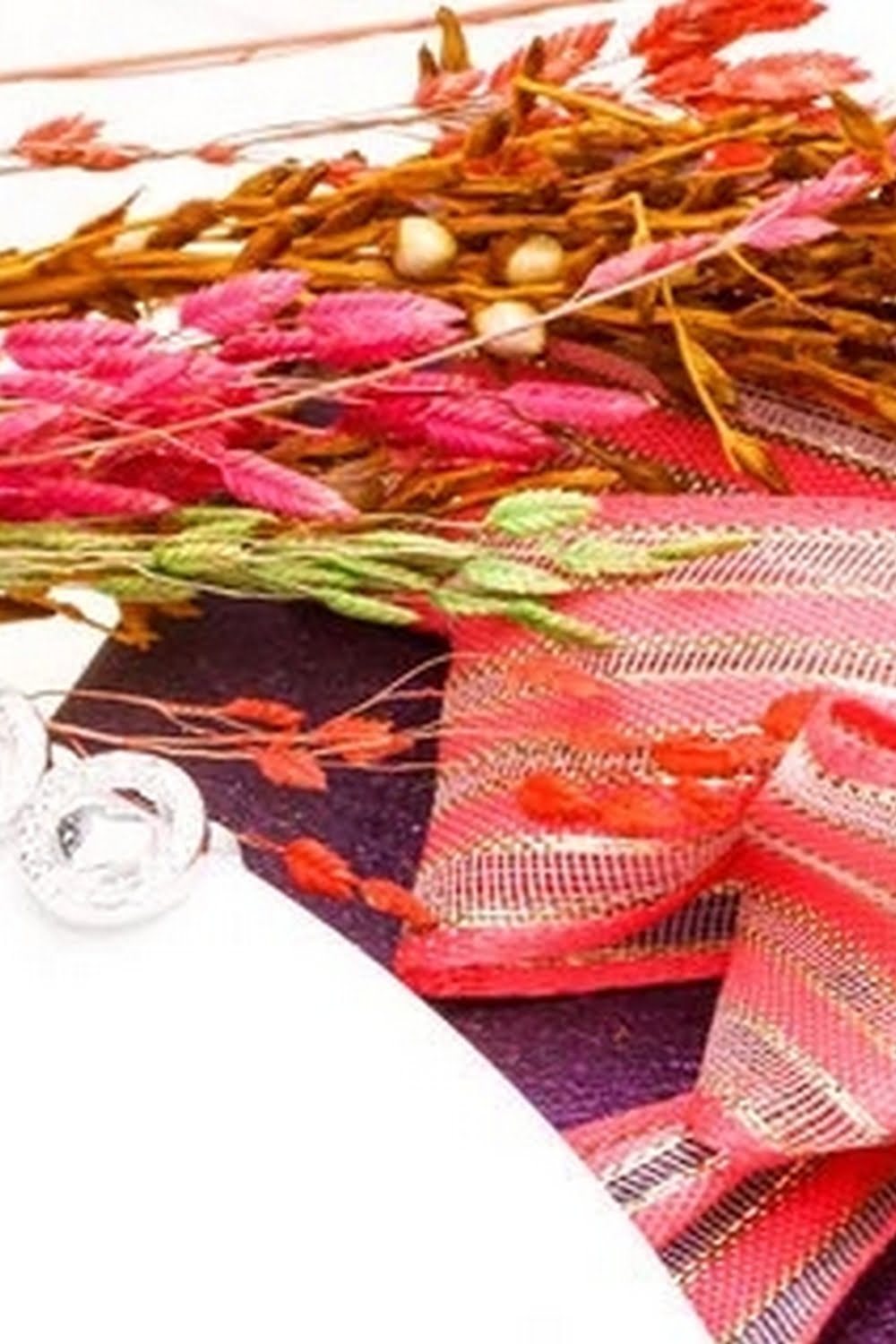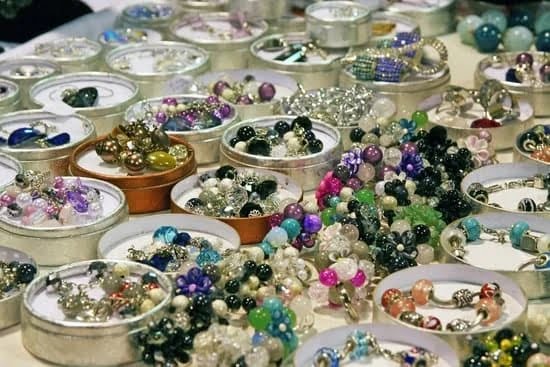The fashion jewelry industry in Canada is experiencing significant growth, with an increasing number of people embracing this trend. However, as the popularity of fashion jewelry continues to rise, there is a growing need for regulation and safety measures to protect consumers. This raises the question: are Registered Nurses (RNs) needed in this specific field?
In this article, we will delve into the role of RNs in the fashion jewelry industry, exploring their potential contributions and responsibilities. We will also examine the legal regulations and standards currently in place for fashion jewelry in Canada and discuss how RNs can help ensure compliance with these requirements. Furthermore, we will highlight the potential risks and dangers associated with fashion jewelry, underscoring how RNs can use their knowledge and expertise to mitigate these risks.
Fashion jewelry manufacturers must prioritize quality control, material safety, and product testing to guarantee consumer satisfaction and well-being. The involvement of RNs can play a crucial role in achieving these goals.
With their background in healthcare and strong understanding of regulations and safety protocols, RNs have valuable skills that can be applied to the context of fashion jewelry. By being aware of potential health hazards such as allergies, skin reactions, and heavy metal toxicity, RNs can help identify problematic materials or manufacturing processes that could pose a risk to consumers.
As we explore further into this topic, it is important to highlight the benefits of having RNs actively involved in the production and distribution processes within the fashion jewelry industry. Their presence would not only enhance quality control but also contribute to customer satisfaction by ensuring safe products are readily available on the market. Moreover,RN’s expertise would positively impact public health and safety by raising awareness about potential risks associated with fashion jewelry use.
Overall, engaging Registered Nurses within the fashion jewelry industry has immense potential for positive outcomes. Collaborative efforts between RNs and businesses can lead to improved quality control, increased customer education and satisfaction, and enhanced public health and safety standards. In the following sections, we will explore the role of RNs in the fashion jewelry industry in more depth, discussing specific responsibilities, legal regulations, potential risks, benefits, collaborative efforts, and successful case studies.
Role of Registered Nurses (RNs) in the Fashion Jewelry Industry
Registered Nurses (RNs) play a crucial role in various fields of healthcare, but their potential contributions extend beyond traditional healthcare settings. In the fashion jewelry industry, RNs can bring their expertise to ensure quality control, material safety, and product testing. This section will explore the role of RNs in the context of fashion jewelry production and distribution and highlight how they can help maintain the highest standards of safety and well-being for consumers.
Application of Traditional Responsibilities:
While the role of an RN may seem unconventional in the fashion jewelry industry, their traditional responsibilities can be applied to ensure safe and ethical practices. RNs are trained to prioritize patient safety, assess risks, and implement measures to prevent harm. These skills can easily be translated to inspecting materials used in fashion jewelry production and assessing potential risks associated with various components.
For instance, RNs are knowledgeable about allergens and skin sensitivities that can result from certain metals or chemicals used in jewelry manufacturing. Their expertise allows them to identify potentially harmful substances that may cause allergic reactions or skin irritations for consumers. By actively participating in quality control processes, RNs can help mitigate these risks through rigorous testing and selection of safe materials.
Quality Control and Product Testing:
Quality control is paramount in the fashion jewelry industry to ensure that products meet safety standards and customer expectations. With their understanding of medical equipment specifications and sterilization protocols, RNs have valuable knowledge regarding stringent product testing requirements. They can actively contribute by implementing procedures that guarantee thorough material inspections, efficient manufacturing processes, and proper sanitation techniques.
RNs also have a wealth of experience interpreting regulatory guidelines within a healthcare setting. Transferring this expertise to the fashion jewelry industry enables them to navigate complex legal regulations efficiently. Their involvement enhances compliance with existing safety standards such as restriction limits on heavy metals or regulations on nickel content in accessories. By facilitating regular testing and monitoring, RNs can help prevent potential health hazards associated with fashion jewelry.
Legal Regulations and Standards for Fashion Jewelry in Canada
Overview of Existing Regulations and Standards
In Canada, the fashion jewelry industry is subject to specific legal regulations and standards to ensure consumer safety and product quality. The main regulatory body responsible for overseeing this industry is Health Canada, which has established guidelines under the Food and Drugs Act and Consumer Product Safety Act. These regulations cover various aspects such as labeling requirements, material restrictions, testing procedures, and reporting obligations.
Under these regulations, fashion jewelry products must comply with specific standards related to the content of hazardous substances. For example, Health Canada limits the amount of lead that can be present in certain products due to its toxic nature.
Additionally, nickel release from jewelry is closely monitored due to the potential risk of allergic reactions among consumers. By enforcing these regulations, Health Canada aims to protect consumers from harmful materials and ensure the overall safety of fashion jewelry in the Canadian market.
Importance of Compliance with Regulations
Compliance with legal regulations and standards is crucial for businesses in the fashion jewelry industry. By adhering to these requirements, companies demonstrate their commitment to product quality and consumer safety. Failure to comply can result in penalties or even product recalls, which can damage a company’s reputation and financial stability.
Moreover, compliance with regulations benefits consumers by providing them with transparent information about the products they purchase. When fashion jewelry complies with legal requirements, it ensures that customers have access to accurate labeling regarding allergens or potentially harmful substances present in the product.
The Role of RNs in Ensuring Regulatory Compliance
Registered Nurses (RNs) play a vital role in ensuring compliance with legal regulations and standards for fashion jewelry in Canada. Their expertise in health promotion, disease prevention, risk assessment, and quality control makes them valuable assets within the industry.
RNs can contribute significantly by participating in quality assurance procedures such as product testing and evaluation. They possess a deep understanding of health hazards and are trained to identify potential risks associated with materials used in fashion jewelry. By collaborating with manufacturers and designers, RNs can help ensure that products meet regulatory requirements, minimizing harm to consumers.
Additionally, RNs can provide valuable insights and recommendations for improving the safety of fashion jewelry products. Through their knowledge of material toxicity and skin reactions, they can guide businesses in choosing safer alternatives or implementing preventive measures during the design and production processes.
Overall, RNs bring a unique perspective to the fashion jewelry industry by prioritizing public health and safety. With their involvement, businesses can enhance compliance with regulations, produce higher quality products, and establish trust among consumers.
Potential Risks and Dangers in the Fashion Jewelry Industry
The fashion jewelry industry, like any other sector, is not without its risks and potential dangers. Understanding these risks is crucial for ensuring the safety of consumers and maintaining the integrity of the industry. In this section, we will identify some common risks associated with the production and use of fashion jewelry and discuss how Registered Nurses (RNs) can play a pivotal role in mitigating these risks through their knowledge and expertise.
One significant risk in the fashion jewelry industry is the potential for allergies and skin reactions caused by certain materials used in jewelry production. Many fashion jewelry pieces contain metals such as nickel or cobalt, which are known to cause contact dermatitis in some individuals.
RNs can help address this risk by conducting thorough material safety assessments to identify potential allergens. By working closely with manufacturers, RNs can ensure that only safe and hypoallergenic materials are used in the production process.
Additionally, there is a concern regarding heavy metal toxicity in fashion jewelry. Some cheaper imported pieces may contain high levels of lead or cadmium, which can be hazardous to human health. RNs can contribute to quality control processes by collaborating with manufacturers to conduct rigorous product testing for heavy metal content. By implementing strict standards and regulations, RNs can help eliminate unsafe or contaminated fashion jewelry from reaching the market.
Furthermore, RNs can also play a crucial role in educating consumers about potential risks and dangers associated with fashion jewelry usage. Through informative packaging labels, they can provide essential information about specific materials used, care instructions, and possible allergic reactions. By increasing consumer awareness, RNs contribute to reducing incidents of adverse reactions or health issues related to fashion jewelry usage.
Benefits of Having RNs in the Fashion Jewelry Industry
The inclusion of Registered Nurses (RNs) in the fashion jewelry industry in Canada offers several benefits that contribute to enhanced quality control, customer satisfaction, and public health and safety. RNs bring their knowledge and expertise to ensure that fashion jewelry products meet safety standards and regulations. Their ability to understand potential risks and dangers associated with the industry allows them to mitigate these risks effectively.
One of the significant advantages of having RNs involved in the production and distribution processes is improved quality control. The expertise of RNs in assessing product materials, design, and manufacturing processes can help identify any potential issues that may compromise the safety or quality of fashion jewelry. By conducting thorough inspections and testing procedures, RNs can prevent defective items from entering the market.
Furthermore, incorporating RNs into the fashion jewelry industry can lead to higher levels of customer satisfaction. Consumers are becoming increasingly concerned about product safety and are more likely to trust brands that prioritize their well-being. By having RNs as part of their team, fashion jewelry businesses can demonstrate a commitment to ensuring safe products. This transparency fosters trust between businesses and consumers, leading to greater customer loyalty.
In addition to improving quality control and customer satisfaction, having RNs in the fashion jewelry industry has a positive impact on public health and safety. Fashion jewelry often contains various materials such as nickel, lead, or other allergenic substances that can cause skin reactions or other health issues. Lacking adequate awareness or education about these risks may result in adverse effects for consumers.
However, when RNs are involved in product development, labeling, and informativ packaging processes, they play a crucial role in educating customers about potential risks associated with certain materials or designs. This increased level of consumer education helps individuals make informed decisions about their purchases and avoid unnecessary health hazards.
Overall, incorporating RNs into the fashion jewelry industry brings numerous benefits such as improved quality control, increased customer satisfaction, and enhanced public health awareness. Their expertise and vigilance contribute to a safer, more reliable market for fashion jewelry in Canada.
| Benefits of Having RNs in the Fashion Jewelry Industry |
|---|
| Improved quality control |
| Higher levels of customer satisfaction |
| Positive impact on public health and safety through consumer education |
Collaborative Efforts
The fashion jewelry industry in Canada can greatly benefit from the collaborative efforts between Registered Nurses (RNs) and fashion jewelry businesses. With their expertise in quality control, material safety, and product testing, RNs can play a pivotal role in ensuring the safety and quality of fashion jewelry products. By partnering with RNs, fashion jewelry businesses can enhance their overall operations and contribute to improved customer education and awareness.
One important area where RNs can contribute is in product development. Their knowledge of materials, potential allergens, and toxicity levels can help businesses make informed decisions about which materials to use in their jewelry. By working closely with designers and manufacturers, RNs ensure that the chosen materials meet high safety standards and reduce the risk of health hazards such as allergies or skin reactions.
Furthermore, RNs can assist in labeling and informative packaging. They possess the ability to communicate complex health-related information in a clear and concise manner, making it easier for consumers to understand any potential risks associated with wearing certain types of fashion jewelry. Collaborating with RNs can also help businesses comply with legal regulations pertaining to product labeling, further enhancing transparency and consumer protection.
| Advantages | Benefits |
|---|---|
| Enhanced quality control | Improved customer satisfaction |
| Ensure compliance with regulations | Positive impact on public health and safety |
Having RNs involved in the production process also strengthens quality control measures. They have extensive knowledge of infection control protocols, sterilization techniques, and hygiene practices that are crucial when handling fashion jewelry products. By implementing these practices effectively, businesses can reduce the risk of contamination or transmission of bacteria or viruses.
Case Studies
In recent years, the fashion jewelry industry in Canada has seen a significant increase in demand and popularity. With this growth comes the need for strict regulation and safety measures to ensure that consumers are receiving high-quality and safe products.
Registered Nurses (RNs) have been playing a crucial role in ensuring the safety and quality of fashion jewelry through their expertise and knowledge. Several case studies have demonstrated the successful implementation of RNs in the fashion jewelry industry, showcasing the positive outcomes that result from their involvement.
One notable case study is “JewelSafe,” a Canadian fashion jewelry company that took a proactive approach to product safety by collaborating with RNs. The company recognized that many customers were concerned about potential health risks associated with fashion jewelry, such as skin reactions or allergies. By incorporating RNs into their operations, JewelSafe was able to address these concerns effectively.
The RNs conducted thorough research on materials used in their products and implemented quality control measures to ensure that only safe materials were used. As a result, JewelSafe experienced an increase in customer satisfaction and loyalty, with many customers appreciating the company’s commitment to their well-being.
Another successful implementation of RNs can be seen at “LuxJewels.” This luxury fashion jewelry brand recognized the importance of ensuring their products met both legal regulations and customer expectations for safety. They enlisted the help of an RN consultant who worked closely with LuxJewels’ design team to develop innovative ways to integrate safety features into their designs without compromising aesthetics.
For example, they incorporated hypoallergenic coatings on earring posts to reduce allergic reactions among sensitive individuals. This collaboration not only enhanced LuxJewels’ reputation as a trusted brand but also led to an increase in sales as customers embraced their stylish yet safe designs.
These case studies highlight just a few examples of how RNs have successfully contributed to improving product safety and quality within the fashion jewelry industry in Canada. By partnering with RNs, companies can benefit from their expertise and knowledge in areas such as material safety, product testing, and quality control. This collaboration ultimately leads to enhanced customer satisfaction, increased sales, and improved public health and safety.
Conclusion
In conclusion, the presence of Registered Nurses (RNs) in the fashion jewelry industry in Canada is of crucial importance. As discussed throughout this article, RNs bring a wealth of knowledge and expertise that can greatly contribute to the safety, quality control, and customer satisfaction within this industry. With the growing trend of fashion jewelry in Canada, it is essential that regulations and standards are implemented and adhered to in order to protect both consumers and businesses.
The potential risks and dangers associated with fashion jewelry cannot be underestimated. Allergies, skin reactions, and heavy metal toxicity are just some of the health hazards that individuals may encounter when using or producing fashion jewelry. However, by having RNs involved in the production processes, compliance with safety regulations can be ensured, mitigating these risks and promoting public health.
Furthermore, the collaborative efforts between RNs and fashion jewelry businesses have the potential to greatly improve customer education and awareness. Through partnerships, RNs can play a significant role in product development, labeling, as well as informative packaging. This not only enhances customer satisfaction but also contributes to improved safety measures for consumers.
Looking towards the future, it is hopeful that RNs will continue to play an integral part in the fashion jewelry industry in Canada. The implementation of additional regulations and standards may be necessary to address evolving issues and ensure ongoing safety and quality control. With their expertise in healthcare practices and understanding of material safety, RNs are well-equipped to navigate these challenges alongside fashion jewelry businesses.
Frequently Asked Questions
What is a garment RN number?
A garment RN number is a unique identification number given to a registered brand or company that produces textiles in the United States. This number is issued by the Federal Trade Commission (FTC) and is utilized as a way to track the manufacturer or distributor of a particular garment.
The RN number typically appears on the care label or tag of the clothing item, and it helps consumers identify and contact the company responsible for producing the garment.
What are RN and CA numbers on clothing?
RN and CA numbers on clothing are registration numbers used for identifying textile manufacturers and importers within the United States and Canada, respectively. Registered Identification Numbers (RN) are provided by the FTC to U.S.-based businesses, while CA numbers are assigned by the Canada Revenue Agency (CRA).
These numbers serve as a means to locate and contact specific companies, enabling consumers to make inquiries about products, report issues, or seek additional information relating to their garments.
What are the FTC textile labeling requirements?
The Federal Trade Commission (FTC) has established various textile labeling requirements that must be adhered to by textile manufacturers in order to provide consumers with accurate information about clothing products. According to these requirements, garments must have labels disclosing their fiber content, including percentages of each fiber if there are multiple ones present.
Additionally, manufacturers are obligated to include information such as place of origin (country) and care instructions on labels or tags affixed directly to the clothing item. These labeling regulations aim to promote transparency in consumer product information and facilitate informed purchasing decisions while also ensuring compliance with applicable laws regarding textile labeling.

Welcome to my jewelry blog! My name is Sarah and I am the owner of this blog.
I love making jewelry and sharing my creations with others.
So whether you’re someone who loves wearing jewelry yourself or simply enjoys learning about it, be sure to check out my blog for insightful posts on everything related to this exciting topic!





